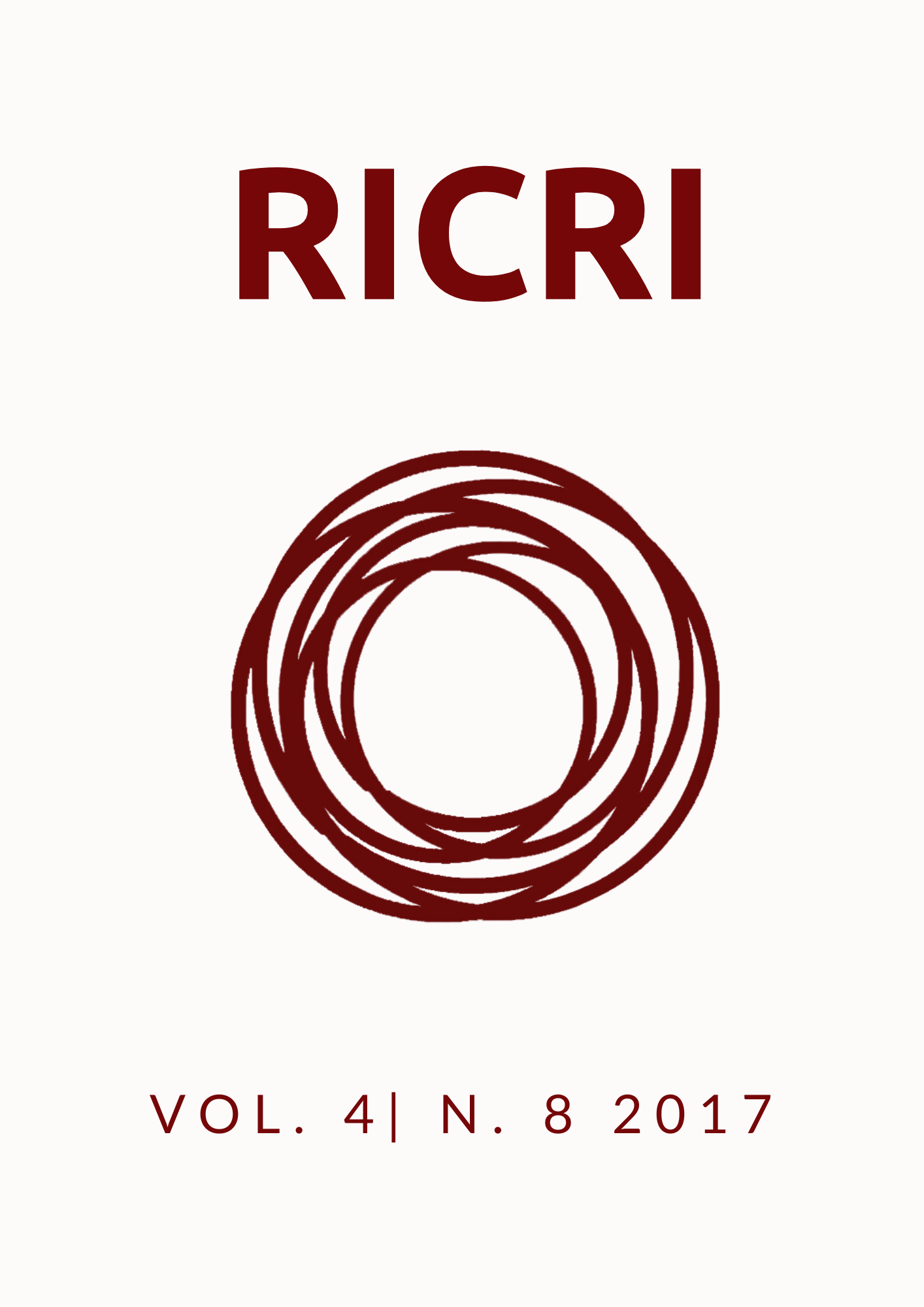International Relations and the concept of “international society”: understanding the relevance of the English School
DOI:
https://doi.org/10.22478/ufpb.2318-9452.2017v4n8.33790Abstract
Title: International Relations and the concept of “international society”: understanding the relevance of the English School.
Título: As Relações Internacionais e o conceito de “sociedade internacional”: examinando a importância da Escola Inglesa.
Abstract: The End of the Cold War has cast doubt over the state-centrism of International Relations (IR). However, events in the 21st century, brought back an assertive United States and the sense of a return to extreme Realpolitik. Given these transformations, this paper asks if the so-called English School theory is still relevant to the understandings of international relations. This theory offers an important theoretical toolkit capable of critically reflecting on the complexities intrinsic to the contemporary world. Its strength stems from how the concept of “international society” provides students with a flexible instrument, that emphasises the relevance of the social character of interstate relations. Its features allow IR students to have a more historical and normative approach to the subject. This concept keeps the state at the centre stage, while not completely excluding neither a systemic nor a “human” oriented view.
Key words: English School, international society, International Relations Theory
Resumo: Com o fim da guerra fria, o “estado-centrismo” das Relações Internacionais começou a ser questionado. Contudo, eventos no século 21, trouxeram de volta um Estados Unidos assertivo e um sentimento de retorno à um viés realista. Dada estas transformações, este artigo questiona se a chamada teoria da Escola Inglesa ainda é relevante para compreender as relações internacionais. Esta teoria oferece ferramentas teóricas capazes de refletir criticamente sobre a complexidade do mundo contemporâneo. Seu ponto forte se baseia em como o conceito de “sociedade internacional” permite à estudantes um instrumento flexível, que reforça o caráter social das relações internacionais. Suas características também possibilitam uma abordagem mais histórica e normativa sobre o assunto. Este conceito mantém o Estado como protagonista, sem excluir visões sistêmicas ou mais “humanas”.
Palavras chave: Escola Inglesa, sociedade internacional, Teorias das Relações Internacionais
Downloads
References
References
BROWN, Chris and AINLEY, Kirsten (2005), Understanding international relations. 5th Edition. Basingstoke, Palgrave Macmillan.
BULL, Hedley (1966), “International Theory: The Case for a Classical Approach”. World Politics. 18 (3), 361-377
BULL, Hedley (1976), “Martin Wight and the theory of international relations: The Second Martin Wight Memorial Lecture”. British Journal of International Studies, 2(2), pp. 101–116.
BULL, Hedley (2012), The anarchical society: a study of order in World politics. 4th Edition. Basingstoke, Palgrave Macmillan.
BULL, Hedley and WATSON, Adam (1984), The expansion of international society. Oxford, Clarendon Press.
BUZAN, Barry (2001), “The English School: an underexploited resource in IR”. Review of International Studies. 27 (3), 471-488.
BUZAN, Barry (2004), From international to world society? English school theory and the social structure of globalisation. Cambridge, Cambridge University Press.
BUZAN, Barry (2014), An introduction to the English school of international relations: the societal approach. Cambridge, John Wiley & Sons.
BUZAN, Barry and LITTLE, Richard (2014), “The Historical Expansion of International Society”. In: Navari, C. and Green, D., (eds.) Guide to the English School in International Studies. Oxford, John Wiley & Sons, 59-75.
CLARK, Ian (2007), International Legitimacy and World Society. Oxford, Oxford University Press.
DOYLE, Michael W. (1986), “Liberalism and world politics”. American Political Science Review. 80 (04), 1151-1169.
DUNNE, Tim (1998). Inventing International Society: A History of the English School. Basingstoke, Macmillan Press
DUNNE, Tim (2013). The English School. In: DUNNE, Tim, KURKI, Milja., SMITH, Steve (2013). International relations theories: discipline and diversity, Third edition. Oxford, Oxford University Press, 132-152.
HENDERSON, Conway W. (2001), “Investigating International Society”. Global Society. 15 (4), 415-423.
HURRELL, Andrew (2007), On Global Order: Power, Values, and the Constitution of International Society. Oxford, Oxford University Press.
JACKSON, Richard (2000), The Global Covenant: Human Conduct in a World of States. Oxford, Oxford University Press
KRASNER, Stephen D. (1982), “Structural causes and regime consequences: regimes as intervening variables”. International Organization, 36(2), pp. 185–205
MORGENTHAU, Hans J. (2006). Politics among nations: the struggle for power and peace, 7th edition. Boston, McGraw-Hill Higher Education.
STERLING-FOLKER, Jennifer (2013). “Neoliberalism”. In: DUNNE, Tim, KURKI, Milja, SMITH, Steve (2013), International relations theories: discipline and diversity, Third edition. Oxford, Oxford University Press, 114-131.
WALTZ, Kenneth N. (1979), Theory of international politics. Reading, Massachusetts: Addison-Wesley Publishing.
WATSON, Adam (1992), The evolution of international society: A comparative historical analysis. London, Routledge.
WENDT, Alexander (1999), Social Theory of International Politics. Cambridge, Cambridge University Press.
WHEELER, Nicholas (2000), Saving strangers Humanitarian Intervention in International Society. Oxford, Oxford University Press.
WIGHT, Martin (1991), International theory: the three traditions. Leicester, Leicester University Press for the Royal Institute of International Affairs.
Downloads
Published
How to Cite
Issue
Section
License
Authors who publish with this journal agree to the following terms:
a. Authors retain copyright and grant the journal right of first publication with the work simultaneously licensed under a Creative Commons Attribution License that allows for sharing of work with acknowledgment of its initial publication in this journal.
b. Authors are able to take on additional contracts separately for non-exclusive distribution of the version of the work published in this journal (e.g., post it to an institutional repository or as a book), with an acknowledgment of its initial publication in this journal.
c. Authors are permitted and encouraged to post their work online ( eg, in institutional repositories or on their website) at any point before or during the submission process, as it can lead to productive exchanges , as well as increase the impact and citation of published work ( See the Effect of Open Access).




